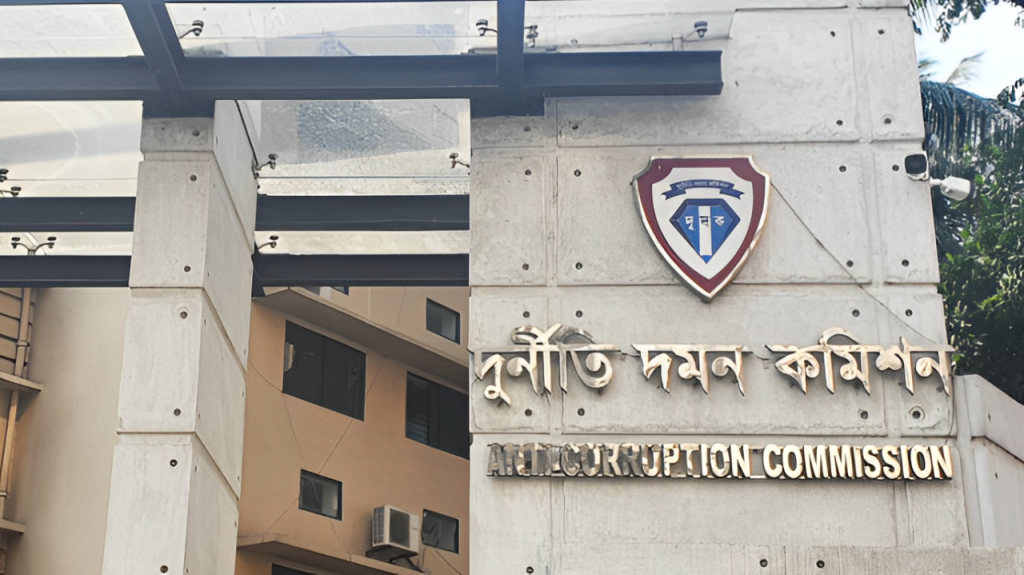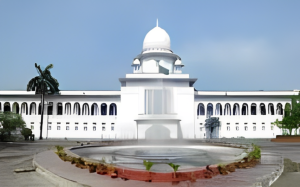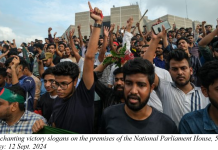At the end of July, Bangladesh’s streets were transformed. What started as a student protest quickly escalated into a Gotham-like scene, with violence and rebellion erupting between the government and its citizens. The youth led the charge, and soon, the entire population joined in.
Like vigilantes, these students restored order when the police force withdrew in fear after Sheikh Hasina resigned on 5 August. For that moment, they were the heroes we needed. But vigilante justice is never the answer to systemic decay. Bangladesh needed more than bravery in the streets—it needed an overhaul and a fresh start.
We stand at the precipice of change four months into the Interim Government, led by Nobel Laureate Dr. Muhammad Yunus. Expectations are soaring, and the pressure is immense. The task is to undo decades of wrongs and lay the foundation for a better Bangladesh.
The Interim Government is prioritizing its tasks with six commissions to achieve this goal. These are to reform the judiciary, election system, administration, police, Anti-Corruption Commission, and the constitution. While numerous sectors need attention, three key reforms are essential to build Bangladesh 2.0.
Anti-Corruption Commission (ACC): The first line of defence
The Anti-Corruption Commission once symbolized hope. Two decades ago, it was designed to be the people’s shield against corruption, but now it is a shadow of its former self. The ACC today is not just ineffective—it has morphed into a weapon used selectively against opposing voices, while the big-time real perpetrators walk free with most large-scale scandals going unchecked. We even saw how, in a controversial 2023 high court ruling, the ACC can even sack employees without proper reasons.
The reason the ACC reform is of utmost priority is that even though the political parties come and go from power and have to convince voters to elect them, civil servants do not operate that way. The ACC has the power to prevent corruption among both politicians and government officials. The citizens of the country interact far more with government employees than with politicians.
Corruption has infiltrated every layer of our society. We rank 10th from the bottom on the Corruption Perceptions Index—our worst standing in years. Bangladeshis abroad often speak of how corruption pushed them to leave, not just in search of opportunities but in pursuit of justice denied at home.
The organization’s autonomy has been destroyed and any reforms must not only address the issue of politically motivated appointments by the past regime, but also reform the system of appointing the right people. To rebuild trust, reforms must ensure the ACC’s independence. Appointments should be made by an impartial council, not by those who themselves need to be held accountable.
Under the current government, some actions are being taken by the anticorruption commission against former MP’s and mayors and other influential parties who benefitted during the previous regime. But this does not signal in any manner that a total overhaul of the current wholesale corrupt government system is coming any time soon.
Election Commission: The guardian of democracy
 A democracy falters when its elections are rigged, manipulated, or seen as mere formalities. In the recent past, the election commission has been seen facilitating all three issues mentioned above. Were they truly powerless, or simply complicit in preserving the status quo? I lean towards the latter.
A democracy falters when its elections are rigged, manipulated, or seen as mere formalities. In the recent past, the election commission has been seen facilitating all three issues mentioned above. Were they truly powerless, or simply complicit in preserving the status quo? I lean towards the latter.
Many say they seemed powerless, but they chose inaction to serve the powerful. They simply did not have the true intent to exercise appropriate authority over the law enforcement necessary to create a neutral ground around the election time.
The solution is not just to grant the Election Commission more power, but to ensure they have the will or intent to use it. Reform must focus on ensuring they stand firm against government overreach, use state resources judiciously, and provide a level playing field for all parties. Once again, appointments should be made by a neutral body—not a government with a vested interest in the outcome.
It has become an utmost priority that a truly powerful and transparent election commission is created as we approach the coming election as it has been announced on 16th December, 2024.
Judiciary: The last bastion of hope
 When all else fails, we turn to the courts. But what happens when even the courts are tainted by bias? While our higher courts still retain some authority, the bigger problem lies with the appointment of certain biased high court judges. To truly defend the nation’s people against any harmful government intentions, the higher courts must remain neutral and possess the constitutional mandate to enforce laws impartially.
When all else fails, we turn to the courts. But what happens when even the courts are tainted by bias? While our higher courts still retain some authority, the bigger problem lies with the appointment of certain biased high court judges. To truly defend the nation’s people against any harmful government intentions, the higher courts must remain neutral and possess the constitutional mandate to enforce laws impartially.
Reform should begin with the lower courts, which, under the previous government, often acted as tools to execute the ruling party’s will, seldom delivering true justice. Currently, genuine legal judgments often require appealing a lower court’s decisions in the higher courts. However, not everyone has the resources to pursue such appeals, and the time it takes to move a case from the lower courts to the higher courts can significantly delay the process. As the saying goes, justice delayed is justice denied. Starting from the rusted “garodghor” to the cages of the court stands, a complete overhaul is required.
Once the lower courts are cleansed of corruption and bias, we can begin to restore faith in the legal system. The current notion that the accused are guilty until proven innocent must be reversed to ensure fairness. The principle of ‘presumption of innocence until proven guilty’ puts the burden of prove on the State – the stronger party, and not on the accused – the weaker party. This also ensures that an innocent is not punished wrongly.
It is also important to note the current trend that persists where political players from the Awami League government are all being charged with murder. While it is definitely important to punish those who were guilty of committing various heinous crimes during their tenure, it is, however, not okay to choose a singular path and charge people with crimes that they might not have committed. This points towards a faulty justice system, which will, in the future, leave grey areas about this government.
The Nexus: ACC, EC, and Judiciary together
These three institutions—ACC, the Election Commission, and the judiciary—are interdependent. The ACC, if functioning properly, can bar corrupt politicians from running for an office. A strengthened Election Commission can then ensure that these candidates do not find loopholes to get elected. And if both these institutions falter, the judiciary must be the safety-net, the final barrier protecting the people from the excesses of power.
Cart before the horse
The Interim Government has recently appointed the Chief Election Commissioner and four election commissioners after consultations with political parties. Earlier it has also appointed a new chief of Anti-Corruption Commission, following the recommendation of a five-member selection committee.
But these appointments have been criticized by concerned citizens. The Jatiya Nagorik Committee (National Citizens’ Committee) has rejected the initiative to appoint new officials for the ACC before the graft body’s reform commission submitted its recommendations. It has also rejected the formation of the new Election Commission for ‘putting the cart before the horse’. The Jatiya Nagorik Committee demands the formation of a new Election Commission under a new law, based on the proposals of the Election Reform Commission.
The Chief Adviser, Dr Yunus, has recently announced the formation of a national consensus commission. This commission, headed by the Chief Advisor, will engage with various stakeholders and political parties for the implementation of the actions of the six commissions.
Visioning Bangladesh 2.0

This is the vision for Bangladesh 2.0: a nation where politicians can no longer treat elections like a formality, where corruption does not bleed into every sector, and where the courts protect the rights of the people, not the privileges of the powerful.
The road to Bangladesh 2.0 is long and fraught with obstacles, but it is one we must travel. Reform is no longer a luxury now—it is a necessity. And as we embark on this journey, let us remember: a nation is only as strong as the institutions that uphold it. To achieve this goal the role of the national consensus commission to act as a nexus of the ACC, the EC and a truly just Judiciary will decide on the success of it all. If all three of these areas cannot work hand in hand, then true reform is unimaginable.
Perhaps we are not only reforming Bangladesh—we are building a new one.

Ashfaq Zaman
Ashfaq Zaman, a Chartered Accountant turned Entrepreneur, has built a dozen successful businesses across diverse industries. He is the founder of Dhaka Forum, and Leadership Excellence and Development (LEAD), an organization that specializes in leadership training, research, digital influencers and leadership incubation. An alumnus of the University of Cambridge & having completed his six sigma from the University of Oxford, UK, he served SFAI International as a Regional Director of Asia Pacific for 4 years. Ashfaq is an ambassador of the honourable society of the Nation of High School Scholars formed by the Noble Sub Committee & a TEDx licensee/curator of TEDxGulshan. He represents as the board advisor of an international charity called Charity Right, overseeing thousands of meals delivered every month to the underprivileged. Ashfaq was a Mentor/Advisor for the British Queen Young Leaders Programme. As a strategic international affairs expert, Ashfaq has presented papers at various global conferences & forums penned frequent thought pieces for the BBC, The Diplomat, MNBC, Foreign Policy, Reuters, EuroNews & other global platforms. E-mail: ashfaq@zamancpa.com; ashfaqrulz@hotmail.com




